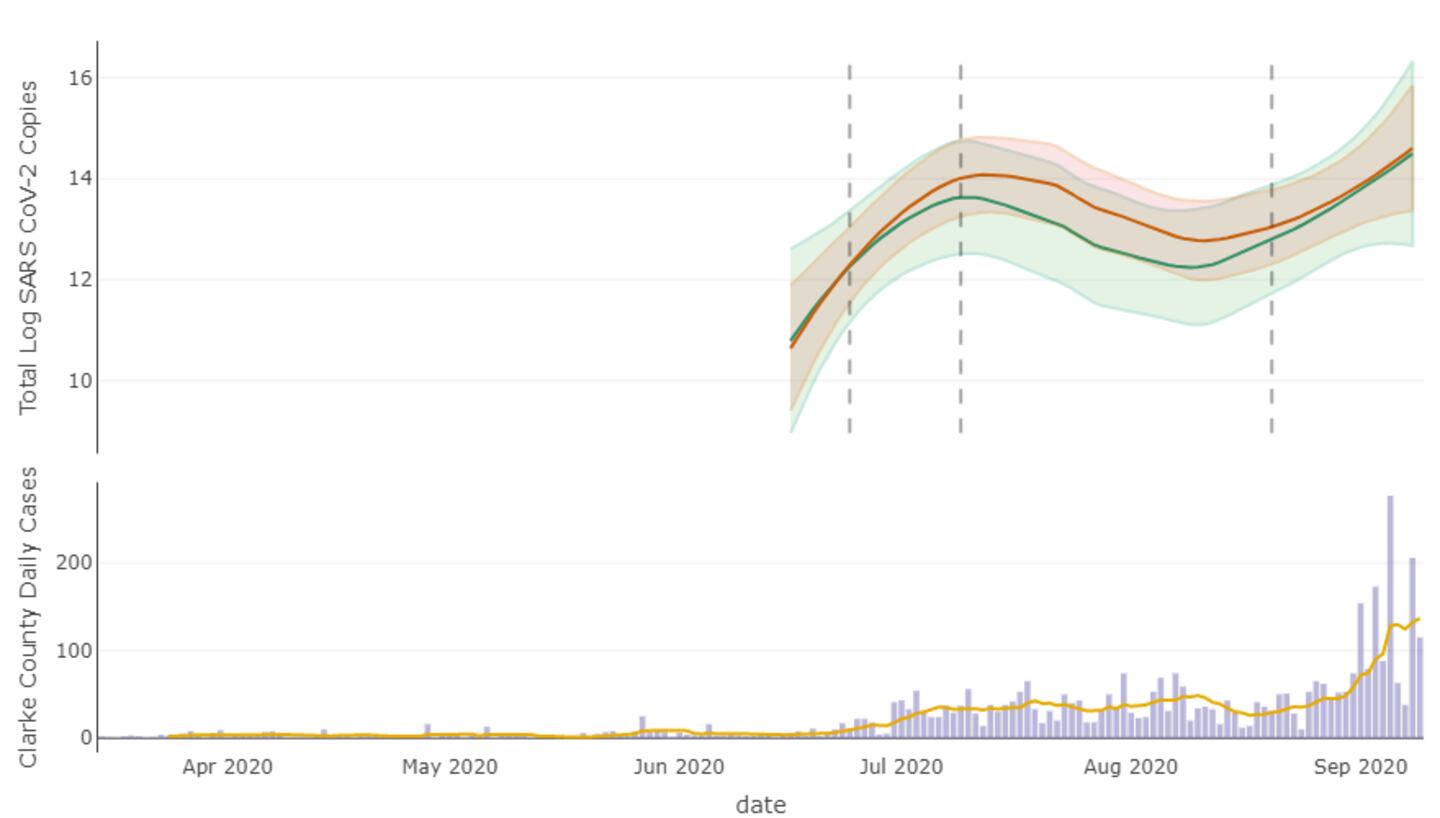ATHENS, Ga. — Scientists at the University of Georgia are using wastewater to track COVID-19 trends in the Athens community.
Channel 2 anchor Jorge Estevez followed the process from the Middle Oconee Water Reclamation Facility to the lab, where scientists track the levels of SARS-COV-2 in the wastewater.
“You can tell a lot by a community by what’s flushed,” said Dr. Erin Lipp, an environmental health science professor at the University of Georgia. “We can tell you when public health measures are working, and they can tell you when you’ve got a problem that may be emerging.”
Lipp said the goal is to alert the public in real time as to which measures are effective at containing the spread of the virus.
“Because it’s testing everybody. If you’re asymptomatic and not being tested, we’re catching that. Or people don’t have access to testing. We’re catching that as well,” she explained.
“When we test wastewater, we’re basically pooling thousands of people at one time, we can get results back within about a day. We know very quickly if trends are changing, we can usually see what’s happening in the wastewater before we see that in case reports.”
Lipp and her team of Ph. D. students began collecting data in mid-June, two weeks after bars and nightclubs in Georgia began reopening with social distancing and cleaning requirements.
Wastewater testing showed the concentration of SARS-COV-2 in Athens-Clarke County trending up until early July. The Athens-Clarke County commissioners passed a mandatory mask ordinance on July 9.
[READ MORE: Athens-Clarke County unanimously passes mandatory mask ordinance]
From that point, the concentration decreased until early August.
“It tells us that we think that the mask ordinance was probably working, at least in terms of our real-time data,” Lipp said.
The University of Georgia’s move-in day was Aug. 14, and classes began on Aug. 20.
On the week of Sept. 1, concentration levels reached their highest point since UGA began collecting data, with levels about 10 times higher than the previous week.
Reported COVID-19 cases in Clarke County continued to rise that week, reaching a 7-day moving average of more than 70 cases daily.
[READ MORE: UGA reports 800+ COVID-19 cases on campus, expert says real number could be more than 3 times that]
Collection data from the week of Sept. 8 showed about the same concentration levels as the previous week, but Lipp’s team suspected that Labor Day travel affected the data.
They predicted that concentration levels in the wastewater would continue to increase the following week, lining up with the rising number of daily reported COVID-19 cases in Athens.
[READ MORE: UGA reports over 1,400 new cases of COVID-19 on campus this week]
MOVING FORWARD
Lipp said that wastewater testing also has the potential to pinpoint the locations of COVID-19 outbreaks.
“If you can move the sampling from the wastewater treatment plant up into what we call the sewer shed, or into sewer lines where you can get closer and closer to neighborhoods that you think might be at risk, it gives you an opportunity to basically use those areas as sentinels,” she explained. “So, if you need to go in with public health interventions, you can go and do that.”
Students agreed that more needs to be done to stop the spread.
“Athens is more than just UGA,” UGA student Eric Mayo said. “There’s also the community that lives here, and we’re just students here. So, it’s important that we actually help the community that stays here, grows up here.”
Cox Media Group










